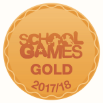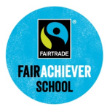Science
Our Vision
Intent
At Connaught Junior School, we aim to prepare every child for life in an increasingly scientific and technological world. Science directly links practical experience with ideas and can engage learners at all levels.
Implementation
Disadvantaged children and those with SEND are able to access the science curriculum through practical enquiries and investigations. Our science curriculum builds on prior knowledge and children leave Connaught well equipped to develop their scientific knowledge and skills in secondary school. In order to develop scientific thinking, we encourage children to question scientific theories and decide on questions they would like to find the answer to.
Impact
Through this they gain an understanding of scientific processes and also an understanding of the uses and implications of Science. By taking this approach, we find that the children’s natural curiosity and enthusiasm for learning is celebrated and this creates engaged learners.
Teaching
Science is taught in an exciting and stimulating way so that it challenges and inspires pupils to search for answers; to explore the world around them and communicate their findings. We believe a practical, inspiring and challenging Science curriculum is the entitlement of all of our children. Practical Science is at the core of our planning, as by allowing children to investigate with a hands-on approach, they are able to apply scientific thinking and skills on a regular basis. We aim to liaise with experts in the field of Science to show how Science impacts how we live in Britain, as well as in the wider world. This continues to be developed with the help of the Science Team, Parents/Carers and Governors.
Planning Ahead
There are plans afoot to turn our Cookery Room into a STEAM Lab. This will enable the children to use this space, not only for cooking but also for Science investigations, Technology, Engineering projects, Art and Maths. This will allow all of our children to experience areas of the curriculum that are difficult to teach in the classroom in a dedicated and well resourced space. Children with a specific interest and aptitude will especially benefit, and our aim is to light a flame of interest in girls and disadvantaged pupils who may otherwise be put off by these technical subjects. We wish to give all our children opportunities that they would not normally get until they reach secondary school.

Science Literacy
Development of scientific vocabulary is a key skill as this aids children’s knowledge and understanding, not only of the topic they are studying, but of the world around them.
Science literacy takes the form of 4 key areas:
Words in science:
Pupils will develop key skills as they progress from Year 3 up to Year 6. They will develop their Science literacy starting at word, sentence and text level, especially looking at issues around scientific terminology.
Why are some Science words difficult?
Why can spelling words accurately be helpful to the understanding of science?
How can we develop students’ skills?
As pupils progress through Key Stage 2, they will build upon a taxonomy of words in Science that will give them a vocabulary and understanding of the ‘key’ technical vocabulary linking to different topics and areas of Science.
Reading in Science:
Over the past couple of years there has been a real thrust in the importance of text as a tool for learning Science. Pupils are given opportunities to explore Science texts. They will encounter many types of texts through individual reading, shared reading and the use of active reading strategies. There are a huge number of books that can now be integrated into the Science curriculum, allowing pupils an even greater variety of useful text sources to enhance their learning and understanding.
Writing in Science:
Writing in Science is extremely important as this shows how much pupils have understood and engaged with their learning. Pupils will explore different text types important to Science, such as the stages of a scientific experiment. These being - aim, prediction, equipment, method, results (data collection) and conclusion. Pupils will develop skills on how their writing could be improved. For example, they will look at writing conclusions and this will be modelled in class by the teacher or together in group work.
Talk in Science:
Talking is so important in Science as discussions can create the opportunities for different ways of approaching an experiment. This can take the form of whole class and small groups or even paired discussion.
Aims
The national curriculum for science aims to ensure that all pupils:
- develop scientific knowledge and conceptual understanding through the specific disciplines of biology, chemistry and physics
- develop understanding of the nature, processes and methods of science through different types of science enquiries that help them to answer scientific questions about the world around them
- are equipped with the scientific knowledge required to understand the uses and implications of science, today and for the future.
Curriculum
|
Year 3 topics |
Year 4 topics |
Year 5 topics |
Year 6 topics |
|---|---|---|---|
|
Plants – Life-cycle parts of the plant Animals including Humans – What and why do humans need food? Skeletons of humans and animals Rocks & Soils - Identifying and comparing their properties Light – Light and shadow & how we see things Forces and magnets – Investigating magnets and friction |
Living things and their habitats – Threats to species, identifying and classifying Animals including humans – Teeth, digestive system and food chains States of matter – Comparing and grouping materials according to whether they are solid, liquid or gas. Sound – Vibrations and sounds Electricity – Investigating simple circuits |
Living things and their habitats - Life cycles & processes Animals including humans - Stages of growth, circulation and recognising the impact of exercise, drugs and lifestyles on their bodies Properties and changes of materials – Solutions and mixtures and how to separate them Earth and space – The Earth, Sun and Moon. Forces – Gravity, resistance and levers |
Living things and their habitats – Classification, & identifying how plants and animals are adapted to their environments. Animals including humans – Diet & exercise Evolution & Inheritance – How things have changed over time Light – How light travels Electricity – Representing circuits with symbols |
Year 3

Yr 3
“I really liked it when we were pretending to be bees and tried to pollinate some flowers in the playground.”
“I like it when we do experiments. My favourites were spotting the different types of rock and using the torches to look at shadows.”
"It was fun learning about skeletons and drawing around our bodies to work out where bones go.”
“We made a slide to find out about friction. We had to put the slide in the same place each time to make it fair."
Year 4
“Our investigation was really disgusting, but we got to see how the digestive system works.”
“It was fascinating to see where our food ends up in our body. “
Year 5
'I love Science as we have lots of opportunities to carry out investigations and find out new things - it's always exciting.'
'Learning about Space was totally awesome! We even had a visitor who had been on the space programme. It really inspired me to learn more about Space and becoming an astronaut.'
Year 6
"I really enjoyed getting the chance to experiment with the equipment and be hands-on as it is the most fun way to learn!"
"We all held hands in a circle and held onto a buzz stick. If anyone let go, the buzzing sound would stop. This showed the effect of a connected or broken electrical circuit as the energy couldn’t be passed on."
How can I support my child at home?
Be interested
Find out their termly topics and take an interest — find relevant books in the library or bookshop - do some research, brush up your own knowledge about the topic so that you can have interesting conversations where you are both learning at the same time.
Take a trip
Why not take a trip to a science museum, a zoo or an aquarium? These don’t necessarily need to be completely related to what they are learning about at school. Any visit can help their curiosity and engagement with science generally.
Make it personal
Find out about famous scientists and research unique and exciting inventions up to and including the present day. Who knows, you may have the next Stephen Hawking or Marie Curie at home!
Get hands-on
Look up fun, practical science experiments you can do at home with everyday objects.
For example:
Try mixing different liquids from your kitchen (like water, oil, washing-up liquid and vinegar) to explore density. You could add objects too and predict how far they will sink!
Why not try making your own mini exploding volcano? Just add bicarbonate of soda, food colouring, washing up liquid and vinegar. Then stand back and watch the eruption!
Cooking is a great opportunity to mix ingredients, add heat and examine changing states.
Try exploring changing states with ice and water to begin to see those changes that can be reversed and those that can’t.
Non-Newtonian fluids or ‘gloop’, is a real favourite— use water and cornflour (or custard powder!) to explore solids and liquids. Just be prepared to get messy!
Of course, there are also some wonderful science kits available to buy to push your scientists further – making crystals, rockets and even bouncy balls.
Anything where they can be hands-on and see the science happen in front of their eyes is guaranteed to get them interested.
Useful websites and podcasts
For Enthusiastic Scientists!
http://www.sciencebob.com/experiments/
Podcasts
https://www.funkidslive.com/podcast/the-fun-kids-science-weekly/




